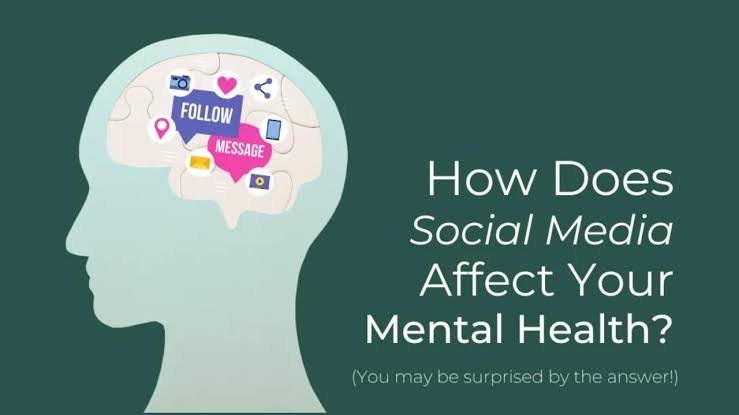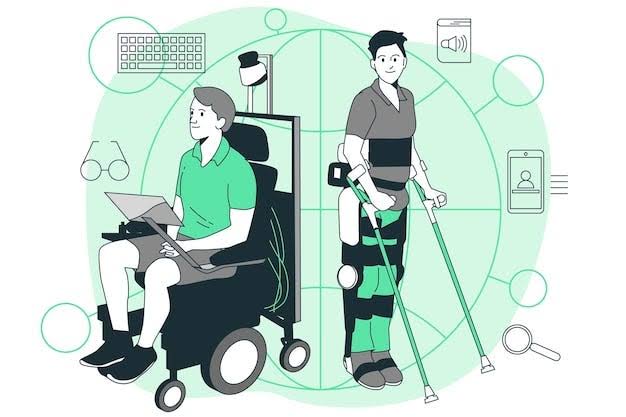Introduction: The Rise of Social Media in Daily Life
In the modern digital world, social media platforms have become embedded in everyday routines. From dawn to dusk, millions of people scroll through feeds, engage with content, and stay connected with others through apps like Instagram, TikTok, Facebook, Snapchat, and X (formerly Twitter).
As of 2025, social media is no longer just a means of communication—it is a primary source of news, entertainment, business promotion, and self-expression. Yet, while it brings convenience and global connectivity, its psychological effects are increasingly under scrutiny.
Researchers and mental health professionals now warn that overdependence on social media can contribute to several mental health issues. These concerns are especially relevant for adolescents and young adults, who spend the most time online and are still developing emotional resilience.
Self-Esteem and Social Comparison
A key psychological impact of social media lies in its ability to trigger harmful social comparisons. Users are often exposed to edited photos, filtered lifestyles, and polished highlights of other people’s lives. These curated realities can create false standards for beauty, success, and happiness.
Young people are particularly affected, developing feelings of inadequacy about their appearance, achievements, or relationships. AI-generated content and hyper-edited influencer profiles in 2025 have further intensified body image issues and self-criticism.
The constant pressure to maintain a visually appealing online identity erodes authentic self-esteem and can lead to chronic self-doubt.
Anxiety, Depression, and Emotional Exhaustion
Excessive use of social media has been linked to increased rates of anxiety and depression, especially among teens and young adults. The reasons for this are both psychological and environmental.
Constant connectivity creates overstimulation and a lack of mental rest. Exposure to negative news, peer pressure, and online arguments can intensify emotional instability. Fear of being judged or ridiculed online contributes to social anxiety, especially when posting content or commenting.
By 2025, mental health clinics are reporting more patients experiencing “digital burnout” due to the mental fatigue caused by being online 24/7. This emotional overload has become a serious concern among psychologists worldwide.
Cyberbullying and Online Harassment
Unlike traditional bullying, cyberbullying is more pervasive because it can happen anytime and anywhere. Social media enables bullies to target victims through messages, comments, memes, and even fake profiles.
The anonymity of the internet often emboldens harmful behavior. Victims of cyberbullying report experiencing shame, isolation, and suicidal ideation. LGBTQ+ youth and people with disabilities are more likely to face online harassment, compounding the psychological damage.
Even with algorithmic moderation and content-reporting features implemented in 2025, many harmful messages still slip through. Victims are often left with long-lasting emotional trauma that requires serious intervention.
Fear of Missing Out (FOMO)
Social media thrives on showing what others are doing—vacations, parties, career milestones, and social events. This creates a powerful psychological effect known as FOMO: the Fear of Missing Out.
Users feel left out or unfulfilled when they perceive others are having more exciting or successful lives. This can trigger anxiety, loneliness, and self-criticism, especially for those who are already dealing with low self-worth. FOMO drives compulsive behavior, such as constantly checking updates or overcommitting socially to feel included.
In 2025, many users admit that FOMO affects their daily decisions, leading to digital exhaustion and unnecessary social pressure.
Addiction and Sleep Disruption
Social media platforms are engineered to maximize engagement, often creating addictive usage patterns that affect mental health and physical well-being.
Infinite scrolling, likes, and notifications trigger dopamine responses that mimic gambling addictions. People experience withdrawal symptoms when trying to disconnect, leading to irritability and restlessness. Screen time before bed disrupts melatonin production, reducing sleep quality and increasing mood disorders.
Tech companies in 2025 have introduced features like screen-time reminders and digital well-being dashboards, but their effectiveness depends heavily on user self-discipline and awareness.
Positive Aspects of Social Media for Mental Health
Despite its challenges, social media can also provide supportive and therapeutic benefits when used mindfully.
Online support groups allow individuals with depression, anxiety, or trauma to connect with others facing similar struggles. Mental health influencers and advocates use platforms to normalize conversations around therapy, medication, and emotional healing. Nonprofits and health professionals utilize social media for campaigns that destigmatize mental illness and promote access to resources.
Platforms like TikTok and Instagram have partnered with mental health organizations in 2025 to provide instant support features, including emergency helplines and self-help tools directly accessible through the apps.
Strategies for Healthier Social Media Use
To mitigate the negative effects of social media, mental health professionals recommend the following proactive strategies:
- Set boundaries: Limit social media use to specific times of the day to avoid overexposure
- Curate your feed: Follow accounts that inspire positivity, motivation, or education rather than comparison
- Take digital detoxes: Weekly or monthly breaks from social media can help reset your emotional well-being
- Use well-being tools: Leverage app features that monitor screen time, mute toxic content, or promote guided relaxation
- Seek professional help: If social media use begins to affect your self-esteem, sleep, or daily functioning, consider therapy or counseling
These strategies are increasingly promoted in schools, workplaces, and health campaigns as part of broader mental wellness education in 2025.
Conclusion: Finding Balance in a Digital World
Social media is a double-edged sword. While it has revolutionized communication, creativity, and community building, it has also introduced serious mental health challenges that cannot be ignored. As of 2025, the pressure to be constantly online, compare oneself to others, and seek external validation has taken a visible toll on millions.
However, by increasing awareness, adopting responsible habits, and using these platforms with intention rather than compulsion, individuals can strike a balance. It is not about quitting social media altogether, but about transforming the way we engage with it—so that it enhances our lives instead of harming our mental health.




Everything this article said